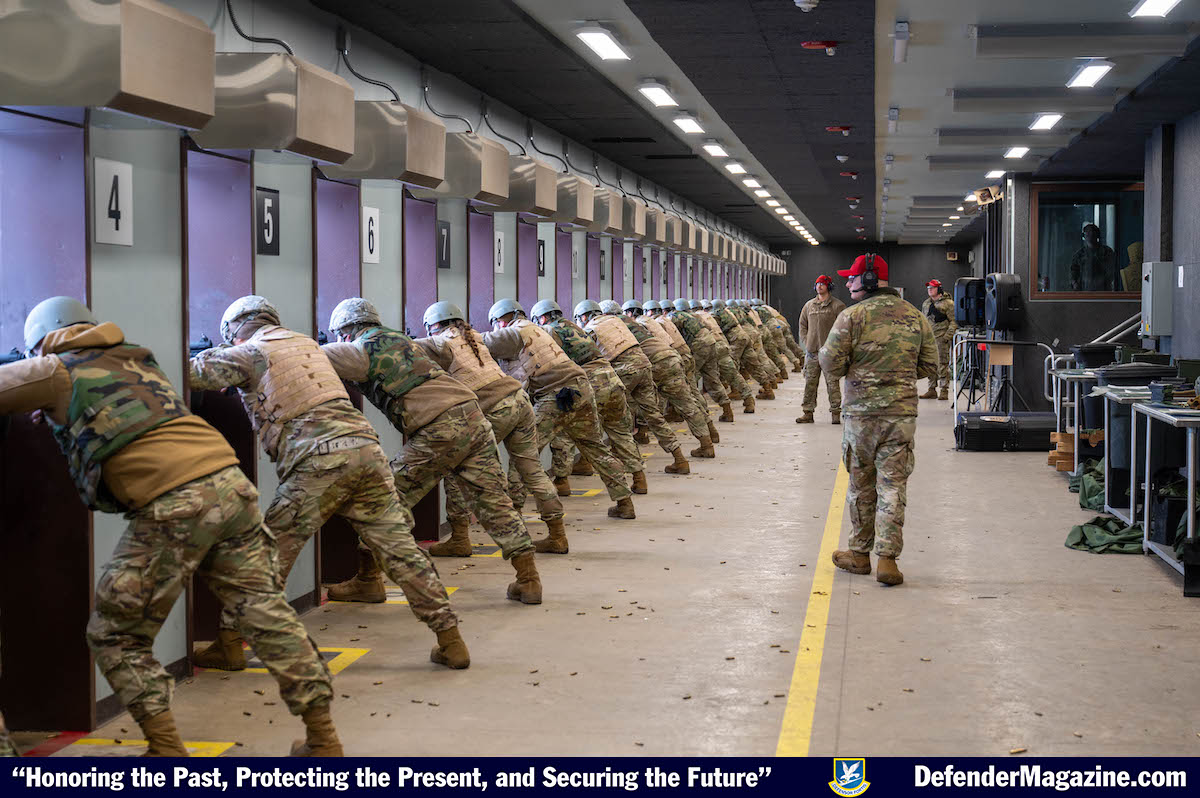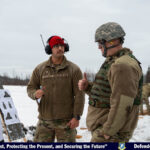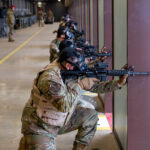
EIELSON AIR FORCE BASE, Alaska — When temperatures drop to negative 40 in Alaska, Eielson’s Combat Arms Training and Maintenance flight stays resilient in their ability to train and qualify Airmen to accurately hit their target.
Operating in this sub-Arctic environment is difficult, but Airmen in CATM have everything they need to get the job done and repair equipment.
“Even though Eielson is pretty secluded and it gets very cold up here, we have a good support system and get the resources that we need,” said U.S. Air Force Staff Sgt. Brett Miner, 354th Security Forces Squadron CATM trainer. “The weather definitely takes a big toll on our weapons and how they break down from the metal expanding and contracting, which can cause them to seize up, but we’re able to fix it on the spot.”
Even though the weather affects the weaponry, it does not stop the effectiveness of the CATM flight from ensuring the lethality and readiness of Eielson’s Airmen.
“A lot of things we cover in the classroom is how to utilize the weapon with winter gear and we show them a thing or two that the weapon can do,” said Miner. “But the cold doesn’t really change our teaching style and how we instruct. Our days just take longer, because we have to make sure that the students stay safe and we don’t get any frostbite or hypothermia or anything like that.”
Eielson’s firing range is outdoors, so the instructors take extra steps to ensure the safety of students.
“We always have to make sure we’re on top of ice and snow removal,” said Senior Airman Megan Sheely-Alvarado, 354th SFS CATM instructor. “We have to plow the walkways and make sure that we’re safe and geared up for the negative 40s.”
On top of all of the challenges the cold weather brings, CATM conducts training for the entire SFS at the end of the calendar year, when the weather gets colder and the sunlight gets shorter.
“We train our Defenders from October to December,” said Miner. “They have to shoot during the nighttime and qualify on their night vision goggles, laser aiming device and flashlights. We see an uptake in personnel coming through because we still have to maintain our readiness posture for the fighter wing and qualifying potential deployers. We also have to annually qualify our Defenders on every weapon system that is used [while on duty].”
At the end of the day, being a CATM instructor in the sub-Arctic can be challenging, but those in the roles get the job done and find it rewarding.
“The most fulfilling part of my job is watching shooters go from being extremely nervous of coming out here to fire, but after sitting through the class and getting out to the line, it’s like the light bulb goes off and they think ‘this is how I put this into play,’ it’s perfect,” said Sheely-Alvarado.
- Published
- By Airman 1st Class Carson Jeney
- 354th Security Forces Squadron

